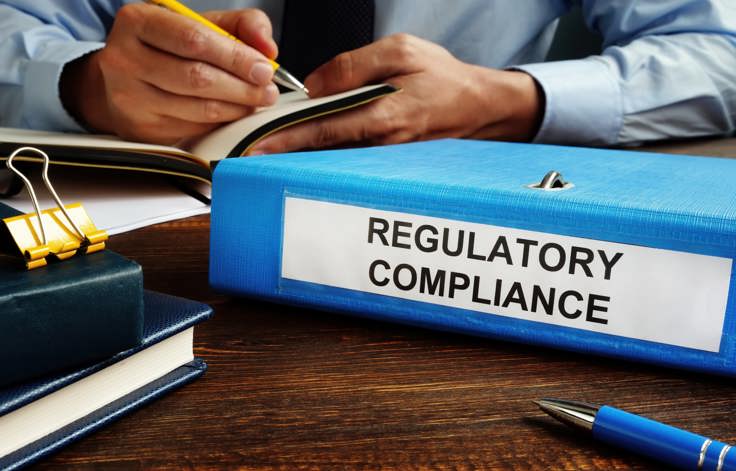An accurate property valuation you can trust
We'll help you to find the value of your property, so you can find a buyer or tenant as soon as possible.
Enter your details below to book a professional appraisal.
If you're buying or selling a home in the UK, chances are you'll hear the term “property chain.” Chains can sound confusing - and they're one of the biggest causes of delay and stress in a move. Understanding how chains work and what you can do if you're part of one can save time, reduce anxiety and help your sale or purchase stay on track.

What is a property chain?
A property chain is a series of linked home sales and purchases that depend on each other to complete. Each buyer needs the sale of their current property to go through so they can fund their purchase. If one link breaks, the whole chain can stall or collapse.
- Simple example: A first-time buyer → buys your house → you buy another house → that seller buys somewhere else.
- Complex example: Several buyers and sellers are all connected; a delay or failed mortgage in one link holds everyone up.
Chains can be as short as two properties or stretch across many households.
Key parts of a chain
- Bottom of the chain: Usually a first-time buyer or cash buyer (they aren't selling a property so that they can start the chain).
- Middle links: Owners selling and buying at the same time; they rely on funds from their sale to purchase their next home.
- Top of the chain: The seller who isn't buying another property (perhaps moving abroad or into rented accommodation).
The chain completes when every sale and purchase is ready to exchange and complete on the same day (or agreed dates).
Why property chains matter
- Timing: You can only exchange and complete once all links are ready.
- Risk of delay: Surveys, mortgage approvals, legal checks or life events can hold up one party and affect everyone else.
- Negotiating power: Chain-free buyers (first-time or cash) are attractive to sellers because they reduce risk.
Typical timeline of a chain
- Offers accepted: Each property in the chain goes under offer.
- Solicitors instructed: Legal checks (searches, contracts, enquiries) begin across all sales.
- Surveys and mortgage valuations: Lenders confirm property condition and lending terms.
- Issues resolved: Negotiations over repairs, paperwork or lease details take place.
- Exchange of contracts: Every link exchanges on the same day or in a carefully managed sequence.
- Completion: Funds move up the chain on the agreed day; everyone gets keys and moves.
One slow or failed step (for example, a buyer's mortgage is refused) can push everything back.
What can delay or break a chain
- Mortgage issues: A buyer's finance falls through or takes longer than expected.
- Survey surprises: Serious problems (damp, structural cracks, roof repairs) cause renegotiation or buyers to pull out.
- Legal complications: Missing paperwork, boundary disputes, slow leasehold management packs.
- Life changes: Job loss, relationship changes or illness can cause someone to withdraw.
- Slow conveyancing: Inexperienced or overloaded solicitors can stall the chain.
How to keep your place in the chain moving
- Choose an experienced estate agent: Agents like Farrell Heyworth track the whole chain and chase progress regularly.
- Instruct your solicitor early: Get ID checks, searches and paperwork started straight after offer acceptance.
- Be proactive with documents: Provide guarantees, planning permissions and management packs quickly.
- Arrange finances early: Secure your mortgage in principle before you offer and respond promptly to lender requests.
- Keep communication open: Reply quickly to your agent and solicitor to avoid bottlenecks.
Options if your chain is delayed or breaks
Renting temporarily
Some sellers move into rented accommodation after selling to break the chain and buy later as a chain-free buyer. It adds moving costs but can give flexibility.
Bridging loans or short-term finance
Specialist finance can let you buy before your sale completes, but it's higher risk and usually expensive - get financial advice first.
Re-marketing your home
If your buyer withdraws, your agent can quickly re-list and find a new buyer to rebuild the chain.
Choosing a chain-free buyer
If you're lucky enough to get multiple offers, a cash or first-time buyer is less risky and can shorten the chain.
Advantages of being chain-free
- Faster completion: Fewer parties mean fewer potential delays.
- Stronger offers: Sellers may accept a slightly lower offer from a chain-free buyer because it feels safer.
- More negotiating power: If you're selling, you can attract better offers by advertising “no onward chain.”
Tips for buyers joining a chain
- Get a mortgage agreement in principle before viewing.
- Have your solicitor ready to act quickly once your offer is accepted.
- Budget time - complex chains often take 12–20 weeks from offer to completion.
- Stay flexible - try to accommodate agreed completion dates if possible.
How Farrell Heyworth helps with chains
At Farrell Heyworth, we don't just market your home - we actively manage the entire chain. Our team:
- Monitors progress on every link, speaking regularly to solicitors and other agents.
- Flags potential delays early so you can act before problems grow.
- Advises on timing your sale and purchase to reduce stress.
- Supports buyers and sellers with practical solutions if a chain wobbles.
Property chains can seem complicated, but understanding how they work - and working with proactive agents and solicitors - makes a huge difference. Keep paperwork ready, respond quickly, and rely on your agent to follow up and coordinate the process. If things go wrong, there are ways to stay on track, from re-marketing to going temporarily chain-free. With expert support, you can navigate a chain and move with confidence.
Related Posts
Why Coastal Relocations Will Surge Again in 2026: Complete Guide for UK Home Buyers
Across the UK, search volumes for phrases such as "move to the coast", "best coastal towns to live", and "coastal…
New 2026 Laws for Self-Managing Landlords: Essential Compliance Guide
With additional reforms due in 2026 under the Renters' Rights Act, and with local authorities receiving an extra £18.2 million…
Best Time to Buy a Property in 2026: A Month-by-Month Guide for UK Buyers
Rather than relying on rapid price growth to offset poor decisions, buyers in 2026 must understand seasonal trends, mortgage market…



